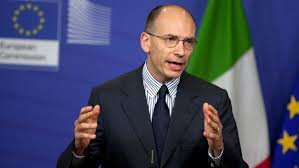
Enrico Letta understood everything. Wednesday he participated in his first European Council and came out as a winner; he set the course of action for the next meeting in June, in spite of Merkel or the quasi neophyte Hollande. This is what he said, explaining and insisting that “on the Italian proposal” the next Council, the one at the end of June, will have the theme of youth unemployment as “qualifying question.” Now everything is relevant. When one says “qualifying question” it conveys a completely personal concept. Within the various questions of that Council, scheduled well before Letta was named Prime Minister, there will certainly be, as announced months ago, unemployment and there will be that of youth as well. That the question is “qualifying” will depend on the interpretations they will want to give from that meeting. But we must remember that this work program was not established because the latest arrival among the European Premiers asked for it. The Council, as the agenda that has been scheduled for some time (long before this Summit) indicates, “will focus on implementing efforts to develop competitiveness, employment and growth in Europe.” But Letta was clever to say that it is a credit to him. Many wanted to believe it. Everyone has to justify their own work in some way.After Letta had spoken to journalists it comes to light that the German Chancellor and the French President decided to elaborate together on a plan to counter unemployment and that for this job they didn’t even think about Italian input. Then it also surfaces that just as Letta was required to announce to Italian journalists that a meeting of European Ministries of Labor will occur in Berlin in July to discuss the “best practices.” So other Italian (and not only to say the truth) Presidents of the Council come to mind who knew how to ride the wave, to understand what was about to happen in spite of them, and that they attempted to take credit themselves. But that is OK, politics are a spectacle. What is important is to know it and that it does not end with saying it when there is something even more difficult to digest: “Europe dictates it.”
Lorenzo Robustelli




![Raffaele Fitto nel corso dell'audizione di conferma per il ruolo di vicepresidente esecutivo della Commissione europea [Bruxelles, 12 novembre 2024]](https://www.eunews.it/wp-content/uploads/2024/11/fitto-241112-350x250.png)




